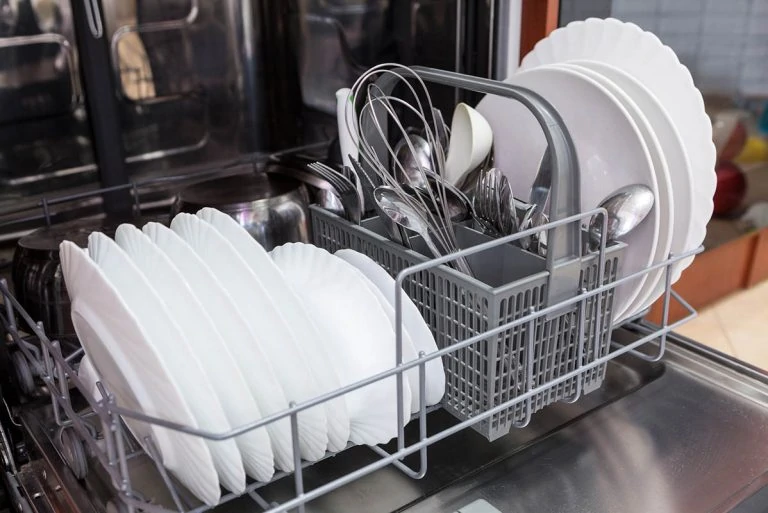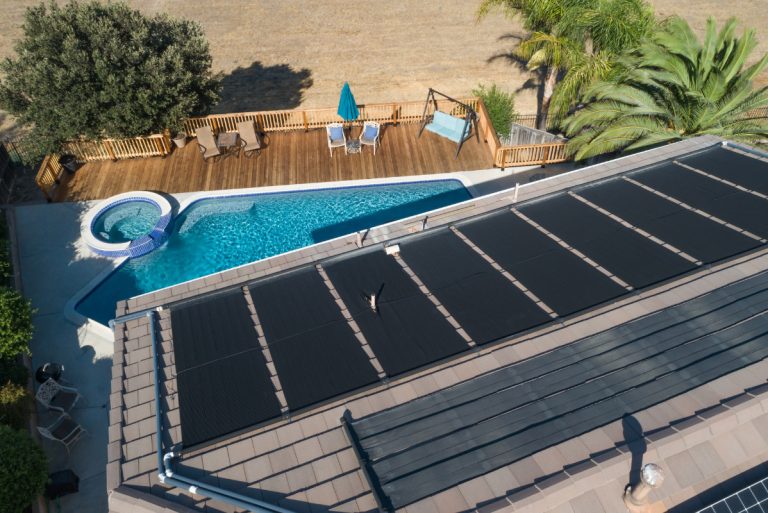As an eco-conscious consumer, you may think that you should avoid modern appliances like dishwashers due to their power and water use. However, when it comes to water at least, it may actually be more eco-friendly to use a dishwasher.
Factors that can influence water use
Water is one of the earth’s most precious natural resources, and the average American household uses more than 300 gallons of water a day. This high rate of water consumption is potentially devastating for the environment, and may put wildlife and natural habitats under threat.
Our daily activities – showering, cleaning our clothes, washing our dishes – make up the majority of our water use. So, how can we be the most water-conscious in our daily lives? The key lies in finding out what our water consumption actually is, including the appliances we use.

For example, how much water does a dishwasher use?
Before we look at an answer to this question, let’s cover a few important caveats that will impact on how much water your dishwasher uses.
The age of your machine
The model of your dishwasher will make a big difference: some machines are a lot more wasteful than others. In particular, older models tend to be less water efficient, while many newer models are much better in this regard.
The size and condition of your machine
The size of your dishwasher also makes a difference: larger machines use significantly more water than smaller models. Additionally, if your machine has leaks or any other technical problems that are causing it to run inefficiently.
How you use your dishwasher
Finally, how much water is used (and wasted) as part of using your dishwasher depends on how you use it. Below we’ll outline how much water the average dishwasher uses, but if you pre-rinse your dishes before popping them into the dishwasher, then this will also need to be factored in.
Equally, if you run some items through more than one cycle because they weren’t clean enough the first time, you’ve essentially doubled the water consumption to clean that dish!
How much water a dishwasher uses
A newer, standard-sized dishwasher uses around three gallons of water for each wash cycle.
Since 2013, manufacturing standards mean that dishwashers cannot use more than five gallons of water for each wash, and many models use less.
On the other hand, a model manufactured before 1994 uses anywhere between nine and 14 gallons of water for every load.
Do dishwashers save water compared to hand washing?
Washing the equivalent of a dishwasher load of dishes can use from 13 gallons to 27 gallons of water, according to different estimates. This is the same as the most wasteful, older-model dishwashers.
However, if you want to know which method is better for the environment overall, the picture is a bit more complex. The ecological impact of washing your dishes involves not only the water used, but also energy consumption.
A dishwasher obviously runs on electricity, and a newer model uses between 0.88 kWh and 1.58 kWh per wash cycle.
On the other hand, hand washing your dishes doesn’t necessarily mean that you’re not using energy and potentially damaging the environment. You need energy to heat the water, and if this is done by a hot water system powered by coal-based electricity this has a negative impact on the environment.
Furthermore, many dishwashers feature a built-in heater that is more efficient at heating the water than a household water heater. Again, this will depend on the model, so it is important to choose an eco-friendly machine.
On the other hand, if you install a few solar panels in your home you will be able to power your dishwasher (or water heater) in a sustainable way.
How to minimize the water your dishwasher uses
Overall, a newer, efficient dishwasher is more eco-friendly than washing your dishes by hand, especially if you take some extra steps to minimize its water use. Of course, having a newer, water-efficient model and running it on an eco-setting is an important start.
You should always wait until you have a full load before running your dishwasher, to ensure you get the maximum out of the water used. However, don’t overfill your dishwasher, because the items will not wash properly if water cannot circulate around all of them. Avoid pre-rinsing your dishes in the sink, and trust that your dishwasher will clean them.
You can make sure this happens, and eliminate the need for extra cycles, by keeping the inside of the dishwasher clean and making sure the arm sprayer isn’t obstructed. Using a high-quality detergent will also help in this respect.
In terms of limiting the energy consumption of your dishwasher, you can skip the heat cycle and instead open the door to let the dishes air dry.
Endnotes
It may surprise you, but a dishwasher can use a lot less water compared to washing your dishes by hand.
This depends on a range of factors from the model of dishwasher to how you use it. However, with the right machine and the right approach, you can actually save water by using a dishwasher!
If you found this article helpful, please feel free to share with your social network.













